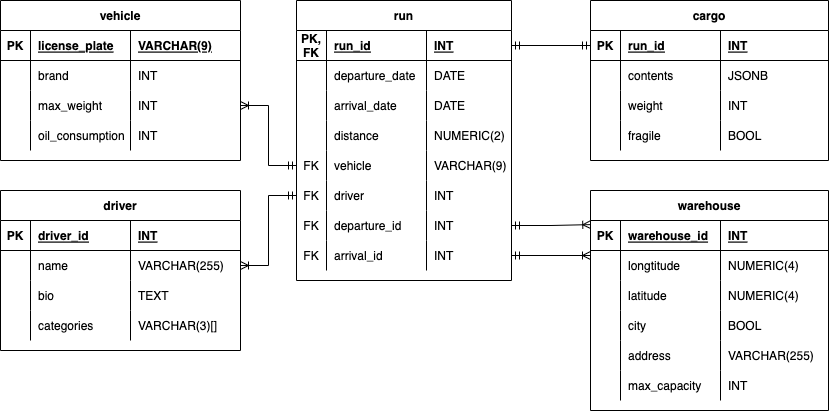As a part of a lab work in "Database Management Systems Course" at BMSTU we had a task to popullate a database with a 100 million records of data in order to subsequently learn how to optimize DB and queries. This repo contains Jupyter Notebook for generating data for a given DB schema.
The program relies on Python library faker. Faker is capable of generating a variety of data, from basic numbers to existing addresses and json files. The obvious flaw of using Faker is it's execution speed, which is rather slow.
The whole program is basically a single class with functions defined for every table in a database. generate_csv may check the input, create a directory for output files if it wasn't done before, and run functions for generating every single table.
During the process of development of a program it became obvious that it will be faster to pre-generate some data using Faker and saving it in a separate file, where possible.
If you feel more comfortable with Google Colab, you may find the source code here.
Given DB describes logistics innformation for a random company in the US, including locations of warehouses, information about trucks, drivers and every single cargo shipment.
The database consists of 5 tables and has a star-like shape with 4 tables being connected to the main one (run).
The execution of the program for 100m records for 2 two tables (as stated in the task) takes more than 40 minutes. Obviusly there is a plenty room for optimization.
Some data may also seem unrealistic. For instance, calculating distance using geopy would increase execution time for run table by almost 40%. That is why I decided to generate a random distance, that doesn't involve actual coordinates. Apparently there is a way to optimize the formula (maybe using not exact, but approximate value) without dramatic execution time increase.
